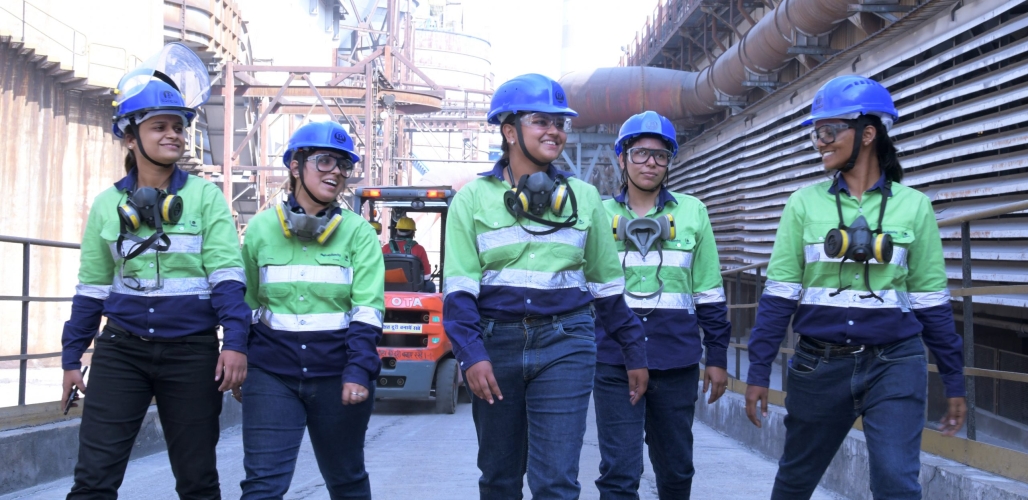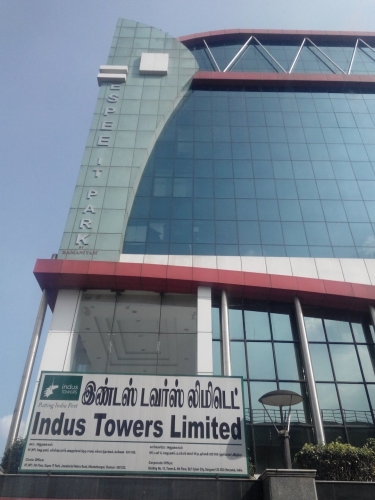Tehran and Red Sea sharks: India is best positioned to convey to Iran the need to rein in the Houthis The present situation in West Asia, altered by the Israeli-Hamas war and the emergence of Iran-backed Houthi rebels as lead responders against Israel, requires a credible conversation with Iran. From an Iranian standpoint too, the overall picture is not encouraging. It has just suffered a twin terror strike killing at least 90 people. While ISIS has claimed responsibility for the attack, the political rhetoric in Tehran remains directed at the West. As a result, it has got pushed into the Russia-China bloc with doors shut on the rest. Historically, Houthis are from a sect that is a variant of Shia Islam. While there are doctrinal differences, Houthis are today part of the larger Iran-led Shia political alliance. Their targeting of merchant vessels in the Red Sea has forced major shipping and freight companies to avoid the Suez Canal and, instead, take the circuitous route around the Cape of Good Hope to Asia. This has increased the distance by 3,300 nautical miles, journey time by 8-10 days and raised shipping costs by 20-25%, depending on the type of vessel, besides throwing tight berthing schedules across ports out of gear. While the immediate impact is still within manageable limits, it's the cumulative long-term effect, in case the situation doesn't improve, that has all stakeholders worried. In this context, the visit of external affairs minister S Jaishankar to Iran acquires significance. India has a healthy relationship with the Ebrahim Raisi regime, one where it has proven its effectiveness as a power that can help Tehran on a larger stage. India, for instance, played a key role in Iran becoming a BRICS member. Saudi Arabia was not keen on Iran getting into the grouping. Which is where Tehran's application for membership ran into trouble. It was India, while agreeing to support the Saudi case, which also backed Iran and then worked hard to lobby with the rest to see it through. This was an important signal from a regional balance of power perspective for Iran. That India decided to press ahead despite its close ties with the US also helped strengthen credibility of the relationship. India will, thus, look to use its channels to impress upon Iran to proactively de-escalate the prevailing situation in the Red Sea as attacks by Houthi rebels are not targeted at just Israeli interests but all merchant vessels. And, despite Tehran's denials, the fact is that it may end up on the wrong side of the ledger with many countries, including India, if all commercial maritime traffic in area remain in the danger of being hit. In many ways, India is positioned best to convey to Iran where this could lead if it does not reconsider its position. And if Iran were to take the Indian side seriously, it might just provide an opening to rebuild bridges of engagement it desperately needs to step out of a difficult political corner it finds itself in, with limited diplomatic options and increasing dependencies on Russia and China. In fact, India may just provide it the heft to rebalance, recalibrate and reboot. source:et
निफ्टी बैंक 48,000 के ऊपर बंद;लक्ष्य 50 हजार पर देखा गया: ज्यादातर बैंकिंग शेयर हरे निशान में बंद हुए लेकिन कुछ बिकवाली एयू स्मॉल फाइनेंस बैंक, आईडीएफसी फर्स्ट बैंक और एक्सिस बैंक जैसे शेयरों में देखी गई । निफ्टी बैंक एचडीएफसी बैंक, फेडरल बैंक, एसबीआई और कोटक बैंक में बढ़त के साथ सोमवार को लगातार चौथे दिन बढ़त के साथ बंद हुए । निफ्टी बैंक 400 अंकों की तेजी के साथ 48,158 पर बंद हुआ । निफ्टी 50,000 के ऊपर एक ताजा रिकॉर्ड उच्च स्तर पर पहुंच गया और 22,097 पर बंद हुआ । ज्यादातर बैंकिंग शेयर हरे निशान में बंद हुए लेकिन कुछ बिकवाली एयू स्मॉल फाइनेंस बैंक, आईडीएफसी फर्स्ट बैंक और एक्सिस बैंक जैसे शेयरों में देखी गई । विशेषज्ञों ने सुझाव दिया कि निफ्टी बैंक 48,000 के महत्वपूर्ण प्रतिरोध से ऊपर बंद हुआ और सूचकांक के लिए अगला तत्काल लक्ष्य 50,000 के आसपास रखा गया है । एलकेपी सिक्योरिटीज के वरिष्ठ तकनीकी और व्युत्पन्न विश्लेषक कुणाल शाह ने कहा," बैंक निफ्टी बैल ने नियंत्रण बनाए रखा क्योंकि सूचकांक ने समापन के आधार पर 48,000 के महत्वपूर्ण प्रतिरोध को सफलतापूर्वक पार कर लिया।" "बैंक निफ्टी इंडेक्स गैप अप और धीरे-धीरे विस्तारित लाभ के रूप में एक धीमी और स्थिर चाल के रूप में अधिकांश ट्रेडिंग सत्र के लिए देखा गया था. इसने दैनिक समय सीमा पर एक तेजी से मोमबत्ती का गठन किया, जो अपने महत्वपूर्ण 20 डीएमए से ऊपर है," मोतीलाल ओसवाल फाइनेंशियल सर्विसेज लिमिटेड के वरिष्ठ उपाध्यक्ष | विश्लेषक-डेरिवेटिव चंदन टपारिया । source: et
Nifty Bank closes above 48,000;target seen at Mt 50K: Most of the banking stocks closed in the green today but some selling was seen in stocks like AU Small Finance Bank, IDFC First Bank, and Axis Bank. The Nifty Bank closed higher for the fourth day in a row on Monday supported by gains in HDFC Bank, Federal Bank, SBI and Kotak Bank. The Nifty Bank rallied over 400 points to close at 48,158. The Nifty50 hit a fresh record high above 22,000 to close at 22,097. Most of the banking stocks closed in the green but some selling was seen in stocks like AU Small Finance Bank, IDFC First Bank, and Axis Bank. The Nifty Bank closed above the critical resistance of 48,000 and the next immediate target for the index is placed around 50,000, suggested experts. "The Bank Nifty bulls maintained control as the index successfully surpassed the critical resistance of 48,000 on a closing basis," said Kunal Shah, senior technical & derivative analyst at LKP Securities. "Bank Nifty Index gap up and gradually extended gains as a slow and steady up move was seen for most of the trading session. It formed a bullish candle on the daily time frame, holding well above its crucial 20 DEMA," Chandan Taparia, senior vice-president | analyst- derivatives at Motilal Oswal Financial Services Limited. source: et
टाटा कंज्यूमर ने पोर्टफोलियो में जोड़ा सही स्वाद: अकार्बनिक विकास को कोट्टाराम एग्रो फूड्स जैसे रणनीतिक अधिग्रहण के माध्यम से जाली बनाया गया था दोनों बायआउट्स में टीसीपीएल की लागत 7,000 करोड़ रुपये है - लगभग वह राशि जो बिसलेरी जल व्यवसाय की निक्सेड बायआउट वार्ता में बताई गई थी । ईटी इंटेलिजेंस ग्रुप: ऐसे समय में जब स्पाइस सेगमेंट में भारतीय एफएमसीजी खिलाड़ियों की रुचि अधिक है, जैसा कि कई राष्ट्रीय और क्षेत्रीय स्पाइस ब्रांडों के अधिग्रहण की श्रृंखला के माध्यम से देखा जाता है, टाटा समूह की एफएमसीजी शाखा टाटा कंज्यूमर प्रोडक्ट्स ने दो व्यवसायों का अधिग्रहण करने में कामयाबी हासिल की है जो कंपनी के पोर्टफोलियो में सफेद रिक्त स्थान को भरते हैं निवेशक निकट अवधि में महत्वपूर्ण दोहरे अंकों की वृद्धि और मार्जिन अभिवृद्धि के लिए तत्पर हैं-एक ऐसा पहलू जो टीसीपीएल स्टॉक को अपने आउटपरफॉर्मेंस को बनाए रखने में सक्षम बनाने वाला है. दोनों बायआउट्स में टीसीपीएल की लागत 7,000 करोड़ रुपये है - मोटे तौर पर वह राशि जो बिसलेरी पानी की निक्सेड बायआउट वार्ता में बताई गई थी । source: et
5% तक की क्षमता वाले 29 स्टॉक: कभी-कभी एक तर्क जो बुल रन की शुरुआत में शेयरों के एक सेट के मालिक होने के खिलाफ जाता है, शेयर बाजारों में सुधार के मामले में काम आता है । एक ऐसा क्षेत्र है जहां कंपनियों के व्यावसायिक अपडेट आम शब्दावली में बात करते हैं । पहला है: विकास मौन होगा। दूसरा, लागत मुद्रास्फीति के कारण मार्जिन दबाव में होगा और तीसरा, विभिन्न श्रेणियों में प्रतिस्पर्धा बढ़ रही है । यह क्षेत्र एफएमसीजी है जहां कथा यह है कि एफएमसीजी स्टॉक खरीदने का यह एक बुरा समय है । शायद, यह इस क्षेत्र में एक विपरीत कॉल लेने का समय है । उनकी बैलेंस शीट अच्छी मात्रा में नकदी के साथ मजबूत होती है और उनके पास एक या दूसरे शिष्टाचार में अल्पसंख्यक शेयरधारकों के साथ लाभ साझा करने का ट्रैक रिकॉर्ड भी होता है । इसके अलावा, एफएमसीजी एक ऐसा व्यवसाय है जहां किसी विशेष खंड की सफलता को बदलना या दोहराना आसान नहीं है । एक तकनीकी बिंदु से भी, ये बड़े स्थापित खिलाड़ी नकदी जुटाने के लिए बाजार में नहीं आए हैं, इसलिए दशकों में उनके फ्लोटिंग स्टॉक में वृद्धि नहीं हुई है । हां, एफएमसीजी कंपनियां अचानक बहुत अधिक वृद्धि दिखाएंगी, लेकिन भले ही कम या एकल अंकों की वृद्धि स्थिर हो और साल दर साल, तिमाही दर तिमाही आएगी । यही कारण है कि किसी को शेयरों में मजबूत दिशात्मक आंदोलन नहीं मिलेगा । लेकिन फिर गिरावट न करें और मंदी के चरण में 40 प्रतिशत खो दें, कभी भी इससे उबरने के लिए नहीं । एफएमसीजी स्टॉक का यह 60 गुना मिड या स्मॉल कैप या यहां तक कि कंस्ट्रक्शन या रियल एस्टेट सेक्टर की लार्ज कैप कंपनियों की तुलना में अपेक्षाकृत अधिक सुरक्षित है या एक ही कीमत पर कई बार कमाई करने वाले रेलवे को बहुत पसंद करते हैं या यहां तक कि 40 गुना भी कहते हैं । एफएमसीजी सेक्टर-अपसाइड पोटेंशियल 14 जनवरी, 2024 कंपनी का नाम नवीनतम औसत स्कोर रेको विश्लेषक गणना हिंदुस्तान यूनिलीवर 7 खरीदें 40 उल्टा क्षमता% 29.7 आईएनएसटी हिस्सेदारी% 16.3 मार्केट कैप करोड़ रुपये कंपनी का नाम 598,030 डाबर इंडिया नवीनतम औसत स्कोर 5 रेको विश्लेषक गणना उल्टा क्षमता % आईएनएसटी हिस्सेदारी% मार्केट कैप करोड़ रुपये कंपनी का नाम खरीदें 44 25.5 19.7 97,382 मैरिको नवीनतम औसत स्कोर 7 रेको खरीदें विश्लेषक गणना 41 उल्टा क्षमता % 23.9 आईएनएसटी हिस्सेदारी % 27.9 मार्केट कैप करोड़ रुपये 68,936 कंपनी का नाम नेस्ले इंडिया नवीनतम औसत स्कोर 7 रेको पकड़ो विश्लेषक गणना 35 उल्टा क्षमता % 14.5 आईएनएसटी हिस्सेदारी % 13:4 मार्केट कैप करोड़ रुपये कंपनी का नाम 245,788 टाटा कंज्यूमर नवीनतम औसत स्कोर 5 रेको खरीदें विश्लेषक गणना 26 * उल्टा क्षमता% 3.5 आईएनएसटी हिस्सेदारी% 32.8 मार्केट कैप करोड़ रुपये 107,645 विश्लेषकों द्वारा दिए गए उच्चतम मूल्य लक्ष्य से परिकलित source: et
स्मॉल-कैप फंड नए रिकॉर्ड गिनते हैं क्योंकि निवेशक बड़े दांव लगाते हैं: स्मॉल-कैप फंड को 2023 में इक्विटी म्यूचुअल फंड में कुल प्रवाह का एक चौथाई हिस्सा मिला, जबकि 2.5 में सिर्फ 2021% था । स्मॉल-कैप फंड में औसत प्रवाह 3,419 में वर्ष में दोगुना होकर 2023 करोड़ हो गया । दिसंबर में, स्मॉल-कैप फंड ने एसोसिएशन ऑफ म्यूचुअल फंड ऑफ इंडिया शो के 935,000 से अधिक फोलियो, या खातों को जोड़ा । जनवरी 2021 को छोड़कर इक्विटी फंड श्रेणी में एक महीने के लिए यह सबसे अधिक था, जब निवेशकों ने विनियमन में बदलाव के कारण मल्टी-कैप फंड से फ्लेक्सी-कैप पर स्विच किया. उन्होंने पिछले महीने इक्विटी फंडों में कुल फोलियो परिवर्धन के एक तिहाई से अधिक के लिए भी जिम्मेदार ठहराया, जो कि 2.48 मिलियन रिकॉर्ड पर भी सबसे अधिक था । औसतन, स्मॉल-कैप फंड में पिछले साल 538,000 का मासिक फोलियो जोड़ था, जो 2022 के औसत की तुलना में लगभग दोगुना था । दिसंबर 16.9 के अंत में स्मॉल - कैप फंड की कुल फोलियो गिनती बढ़कर 2023 मिलियन हो गई, जो कुल इक्विटी फंड श्रेणी में 67% की वृद्धि की तुलना में तीन गुना अधिक तेजी से बढ़ रही है - एक साल पहले से । दिसंबर 14.9 के अंत में स्मॉल-कैप फंड कुल इक्विटी फोलियो का 2023% था, जो इक्विटी से जुड़ी बचत योजनाओं को पार करते हुए सबसे बड़ी इक्विटी फंड श्रेणी बन गई, जिसका योगदान एक साल पहले 1.61 प्रतिशत अंक गिरकर 13.77% हो गया । स्मॉल-कैप फंड को 2023 में इक्विटी म्यूचुअल फंड में कुल प्रवाह का एक चौथाई हिस्सा मिला, जबकि 2.5 में सिर्फ 2021% था । स्मॉल-कैप फंड में औसत प्रवाह 3,419 में वर्ष में दोगुना होकर 2023 करोड़ हो गया । source:et
स्टॉक रडार: वेदांता लिमिटेड 20 महीने में 3% रैली! 200 से ऊपर के स्तर ने मार्च 2021 से धातु स्टॉक के लिए एक मजबूत समर्थन के रूप में काम किया है । स्टॉक ने उछलने से पहले सितंबर 2023 और अक्टूबर 2023 में समर्थन का पुन: परीक्षण किया, जिससे साप्ताहिक चार्ट पर डबल-बॉटम प्रकार का पैटर्न बना । वेदांता लिमिटेड ने पिछले 20 महीनों में 3% से अधिक की रैली की है, जो गिरते ट्रेंडलाइन पैटर्न से बाहर है. शॉर्ट टर्म ट्रेडर्स अब स्टॉक खरीद सकते हैं, 295-300 रुपये के लक्ष्य के साथ 4-6 सप्ताह में । यह स्टॉक 227 रुपए से बढ़कर 274 रुपए 3 महीने में 9% तक पहुंच गया है । मेटल स्टॉक 227 रुपये से 11 अक्टूबर 2023 तक बढ़कर 274 रुपये हो गया, जो 11 जनवरी 2024 तक 20 महीनों में 3% से अधिक की वृद्धि में बदल गया । यह एक महीने में 9% से अधिक बढ़ गया है । अप्रैल 440 में 2022 के उच्च स्तर पर पहुंचने के बाद स्टॉक ने मूल्य-वार सुधार किया और जुलाई 200 में 2022-सप्ताह के मूविंग एवरेज से ऊपर समर्थन पाया और साप्ताहिक चार्ट पर वापस बाउंस हो गया. शेयर 52 जनवरी 340 को 20 सप्ताह के उच्च स्तर 2023 रुपये पर पहुंच गया । 200 से ऊपर के स्तर ने मार्च 2021 से धातु स्टॉक के लिए एक मजबूत समर्थन के रूप में काम किया है । स्टॉक ने उछलने से पहले सितंबर 2023 और अक्टूबर 2023 में समर्थन का पुन: परीक्षण किया, जिससे साप्ताहिक चार्ट पर डबल-बॉटम प्रकार का पैटर्न बना । हाल की गति ने स्टॉक को गिरती हुई ट्रेंडलाइन से ऊपर बंद करने में मदद की जो जनवरी - मई-दिसंबर 2023 के उच्च स्तर को जनवरी 2024 में जोड़ती है. एसएमसी ग्लोबल सिक्योरिटीज के वरिष्ठ तकनीकी विश्लेषक शितिज गांधी ने कहा," वेदांता स्टॉक 2023 में दबाव में रहा है और महीनों में इसके 52 सप्ताह के उच्च 340 स्तरों से 208 के स्तर की ओर एक महत्वपूर्ण गिरावट देखी गई है।" "हालांकि, स्टॉक ने 208 के स्तर के आसपास एक डबल बॉटम पैटर्न बनाया है और एक बार फिर से अपने 52-सप्ताह के निचले स्तर से कुछ रिकवरी दिखाई है, जो एक बार फिर दैनिक समय सीमा पर अपने 200-दिनों के घातीय मूविंग एवरेज से ऊपर एक ताजा गति को पकड़ने के लिए है," उन्होंने कहा । "तकनीकी रूप से, स्टॉक ने एक गोल तल पैटर्न के गठन के साथ दीर्घकालिक मंदी चैनल की गिरती प्रवृत्ति रेखा के ऊपर एक नया ब्रेकआउट दिया है," गांधी पर प्रकाश डाला गया । "इसलिए, कोई भी अगले 295-300 हफ्तों में 4-6 स्तरों के ऊपर के लक्ष्य के लिए मौजूदा स्तरों पर स्टॉक खरीद सकता है, जिसमें 245 स्तरों से नीचे स्टॉप लॉस होता है," उन्होंने सिफारिश की । source:et
विभिन्न क्षेत्रों के 5 लार्जकैप स्टॉक अपसाइड पोटेंशियल के साथ 24% तक: पिछले एक साल में लार्जकैप शेयरों में बड़ा इजाफा हुआ है । उनका बाजार पूंजीकरण अधिक बढ़ गया है और वे अब लार्जकैप हो सकते हैं । इनमें से कुछ स्टॉक उन सेक्टरों से हैं जिन्हें खोजा जा रहा है या फिर से रेट किया जा रहा है जैसे कि वे मिडकैप स्टॉक हैं । उनके संपर्क में आने से जोखिम भरा लग सकता है, लेकिन इनाम की संभावना अधिक है । इस प्रक्रिया में वे खराब स्टॉक और उच्च कीमतों को खरीदते हैं । यदि कोई जोखिम बढ़ाने के बारे में सोच रहा है तो अच्छे व्यवसाय के साथ रहना बेहतर होगा । यह कहना नहीं है कि कोई भी नए गढ़े हुए बड़े कैप खरीदने में गलत नहीं होगा, लेकिन जैसा कि वे किसी भी तूफान का मौसम कर पाएंगे जो किसी भी कारण से उभर सकता है, नुकसान को नियंत्रित किया जाएगा । इस समय इसे लाने का कारण यह है कि एक तेजी से बाजार में एक चीज जो खिड़की से बाहर फेंक दी जाती है वह है "जोखिम प्रबंधन" । उन कंपनियों के संपर्क में रहना जो प्रकृति में थोड़ी रक्षात्मक हैं, स्थिर विकास के साथ भले ही इसका मतलब निरपेक्ष रूप से कम हो । जब आरओई और आरओसीई जैसे वित्तीय अनुपात की बात आती है तो दो चीजों को ध्यान में रखना होगा । सब कुछ अंतर्निहित व्यवसाय पर निर्भर है और हर उद्योग की एक अलग सामान्य सीमा होती है । लेकिन सभी मामलों में, यह देखना बेहद महत्वपूर्ण हो जाता है कि प्रबंधन कितनी कुशलता से पूंजी का उपयोग करता है जिसे वह समय के विभिन्न बिंदुओं पर बढ़ाने में सक्षम रहा है ताकि शेयरधारक रिटर्न अधिकतम हो । शुद्ध मार्जिन और आरओई के साथ लार्ज कैप स्टॉक 14 जनवरी, 2024 कंपनी इंडस टावर्स नाम औसत 6 स्कोर रेको होल्ड विश्लेषक 18 गिनती उल्टा 24.8 संभावित % नेट 12.0 मार्जिन आरओई% 15.1 आईएनएसटी 18.2 दाँव% बाजार 58,305 कैप रुपये सीआर कंपनी एशियन पेंट्स नाम औसत 7 स्कोर रेको होल्ड विश्लेषक 35 गणना उल्टा 22.6 संभावित % शुद्ध मार्जिन % 14.4 आरओई% 33.0 आईएनएसटी हिस्सेदारी% 18.1 बाजार 314,425 कैप रुपये सीआर कंपनी यूनाइटेड स्पिरिट्स नाम औसत 6 स्कोर रेको होल्ड विश्लेषक 22 गिनती उल्टा 21.5 संभावित % नेट 12.4 मार्जिन% आरओई% 20.7 आईएनएसटी हिस्सेदारी% 20.1 बाजार 80,856 कैप रुपये सीआर कंपनी हिंदुस्तान एयरोनॉटिक्स नाम औसत स्कोर 9 सिफारिश खरीदें विश्लेषक 10 गिनती उल्टा 20.6 संभावित % नेट 21.8 मार्जिन% आरओई 15.5 26.2 आईएनएसटी दाँव% बाजार 200,750 कैप रुपये करोड़ कंपनी एचडीएफसी एएमसी नाम औसत 8 स्कोर रेको होल्ड विश्लेषक 20 गिनती * उल्टा 16.1 संभावित % नेट 73.2 मार्जिन % आरओई 29.2 आईएनएसटी 27.4 दाँव% बाजार 73,758 कैप रुपये सीआर source:et
Stocks with up to 29% upside potential: Sometimes a rationale which goes against owning a set of stocks at the start of a bull run, comes in handy in the case of a correction in stock markets. There is one sector where business updates from companies talk in the common lingo. First one is: growth will be muted. Second, margins will be under pressure due to cost inflation and third, competition is increasing in different categories. The sector is FMCG where the narrative is that it is a bad time to buy FMCG stocks. Probably, it is time to take a contrarian call in this sector. Their balance sheets are strong with a good amount of cash and also they have a track record of sharing the profit with minority shareholders in one or the other manners. Also, FMCG is a business where it is not easy to replace or replicate the success of a particular segment. Also from a technical point, these large established players haven't come to market to raise cash so their floating stock has not increased in decades. Yes, FMCG companies will show very high growth all of sudden, but even if low or single digit growth it is stable and would come year after year, quarter after quarter. That is the reason why one would not find strong directional movement in stocks. But then do not fall and lose 40 percent in bearish phase not to recover from it ever. This 60 times of an FMCG stock is relatively safer as compared to mid or small cap or even large cap companies from construction or real estate sector or much loved railways quoting at same price earning multiple or even let say 40 times. FMCG Sector - Upside potential Jan 14, 2024 Company Name Latest Avg Score Reco Analyst Count Hindustan Unilever 7 Buy 40 Upside Potential% 29.7 Inst Stake% 16.3 Market Cap Rs Cr Company Name 598,030 Dabur India Latest Avg Score 5 Reco Analyst Count Upside Potential % Inst Stake% Market Cap Rs Cr Company Name Buy 44 25.5 19.7 97,382 Marico Latest Avg Score 7 Reco Buy Analyst Count 41 Upside Potential % 23.9 Inst Stake % 27.9 Market Cap Rs Cr 68,936 Company Name Nestle India Latest Avg Score 7 Reco Hold Analyst Count 35 Upside Potential % 14.5 Inst Stake % 13:4 Market Cap Rs Cr Company Name 245,788 Tata Consumer Latest Avg Score 5 Reco Buy Analyst Count 26 * Upside Potential% 3.5 Inst Stake% 32.8 Market Cap Rs Cr 107,645 Calculated from highest price target given by analysts source: et











Jan 16 2024, 07:52
- Whatsapp
- Facebook
- Linkedin
- Google Plus
0